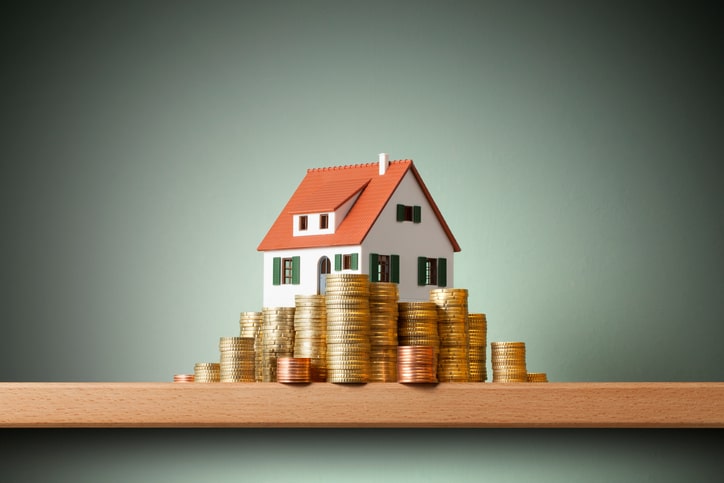
Its layered complexities and diverse perspectives invite a profound exploration of its historical roots, key arguments, and societal impacts. Join us as we dissect this debate and consider future possibilities.
Historical Background of The Great Debate
The topic of whether to buy a house or continue renting has a long and complex history. This debate often centers on factors such as finances, stability, and personal goals. Historically, homeownership in many countries has been associated with economic prosperity and social status. During the early 20th century, policies encouraged home buying as a way to stimulate the economy and create stability.
In the post-war era, particularly in the United States, government programs made home loans more accessible, leading to suburban expansion. However, renting also has its roots in modern society, offering flexibility and lower immediate financial commitment, which became more attractive in urban settings during economic shifts.
The 20th century saw a major shift towards homeownership, while today, increased urbanization and economic factors such as the rising cost of housing and lifestyle preferences have reintroduced renting as a viable and often more pragmatic option. The debate thus reflects changing priorities and economic conditions over time, with each choice offering unique benefits and challenges.
Key Arguments in The Great Debate

The decision between buying a house and continuing to rent has been a topic of lively discussion for many years. Financial Considerations play a significant role in this debate. Purchasing a house often involves a large initial investment, including a down payment and various fees. On the other hand, renting might appear more affordable monthly but offers no return on investment.
Another crucial factor to ponder is stability versus flexibility. Buying a house can provide a sense of permanence and the freedom to renovate your living space. Renting, however, offers flexibility, allowing easy relocation for job changes or personal preferences.
Consider the long-term financial impact. Homeownership can be a path to building equity and wealth over time, as real estate typically appreciates in value. Renters, conversely, may miss out on potential financial growth, as monthly payments do not contribute to ownership.
Lifestyle Choices
Choosing to buy or rent may also reflect on lifestyle priorities. Those who enjoy community roots and investing in a property’s customization often prefer buying. Renters might prioritize the ability to live in various locations and avoid the burden of property maintenance.
Market Conditions are another pivotal factor. In a booming housing market, purchasing could be advantageous, while in uncertain economic times, renting might seem more prudent. Understanding local real estate trends and economic forecasts can help in making an informed decision.
Weighing personal circumstances like career stability, family planning, and financial health is essential. Each individual’s unique situation will influence their choice, ensuring what works best aligns with their aspirations and constraints.
Impacts of The Great Debate on Society
The Great Debate about whether owning a home is better than renting is more than a personal finance issue; it has broad social implications. Homeownership often reflects stability and success in society. It is linked with community involvement and personal investment in neighborhoods. Homeowners might be more motivated to improve local conditions.
Conversely, renting offers flexibility and isn’t necessarily a barrier to community engagement. People who rent can still participate actively in society without the long-term financial commitment that owning a home requires.
The debate influences markets and the economy. Regions where many opt to buy rather than rent might see different economic dynamics compared to areas with higher rental populations. These trends affect urban development and housing policies, leading to shifts in governmental focus on either expanding affordable housing options or facilitating mortgages.
The societal impact stretches to cultural perceptions. In some cultures, renting is synonymous with youth and transition periods, while buying a home is seen as ‘settling down.’ Such perceptions can influence life decisions and the timing of major purchases across different demographics.
Future Perspectives on The Great Debate

As we look ahead at the evolving landscape of The Great Debate, the decision between buying a house and continuing to rent remains central. With the economic climate fluctuating, potential homeowners and renters alike are assessing their options with a mix of caution and optimism.
The advent of new technologies, particularly in the realm of real estate, is reshaping how individuals approach buying and renting decisions. Virtual tours and digital real estate platforms provide potential buyers and renters with more information at their fingertips than ever before. This digital shift enhances transparency and allows individuals to make more informed choices suited to their personal financial situations.
Economic Factors Influencing Decisions
Economic trends will significantly impact whether buying or renting is more advantageous. Interest rate fluctuations, housing market trends, and job stability are critical factors. In economically uncertain times, renting may offer flexibility and less financial strain, whereas stable markets and low-interest rates might favor homeownership.
Furthermore, societal attitudes towards ownership are shifting. The younger generation might prioritize mobility and experiences over settling down in one place, impacting long-term real estate trends. Therefore, those in favor of continued renting find appeal in the flexibility it offers. Conversely, buying a home often ties to long-term financial security and equity building.
Urbanization and Lifestyle Changes
With rapid urbanization, city living is becoming more appealing, affecting the rent versus buy decision. As employment opportunities often concentrate in urban centers, renting is sometimes more feasible in locations with high property costs. However, the value of owning property in less urbanized areas, where growth potential is high, presents an appealing investment prospect for those looking at long-term gains.
Millennials and Generation Z are redefining ownership values, with many placing lesser emphasis on property acquisition and more on travel and technological investments. This shift could profoundly influence future real estate markets, impacting buying trends and rental demands alike.



 Debt Snowball vs Debt Avalanche Which Strategy Works Best <p class='sec-title' style='line-height: normal; font-weight: normal;font-size: 16px !important; text-align: left;margin-top: 8px;margin-bottom: 0px !important;'> This article compares the debt snowball and debt avalanche methods, helping Americans choose the most effective strategy. </p>
Debt Snowball vs Debt Avalanche Which Strategy Works Best <p class='sec-title' style='line-height: normal; font-weight: normal;font-size: 16px !important; text-align: left;margin-top: 8px;margin-bottom: 0px !important;'> This article compares the debt snowball and debt avalanche methods, helping Americans choose the most effective strategy. </p>  Best Credit Card Rewards Strategies for U.S. Consumers <p class='sec-title' style='line-height: normal; font-weight: normal;font-size: 16px !important; text-align: left;margin-top: 8px;margin-bottom: 0px !important;'> This article explains how U.S. consumers can maximize credit card rewards responsibly, choose the right cards, and avoid common mistakes </p>
Best Credit Card Rewards Strategies for U.S. Consumers <p class='sec-title' style='line-height: normal; font-weight: normal;font-size: 16px !important; text-align: left;margin-top: 8px;margin-bottom: 0px !important;'> This article explains how U.S. consumers can maximize credit card rewards responsibly, choose the right cards, and avoid common mistakes </p>  Retirement After 50 How Americans Can Still Build Wealth <p class='sec-title' style='line-height: normal; font-weight: normal;font-size: 16px !important; text-align: left;margin-top: 8px;margin-bottom: 0px !important;'> This article explains how Americans over fifty can still build retirement wealth using smart planning and disciplined financial decisions. </p>
Retirement After 50 How Americans Can Still Build Wealth <p class='sec-title' style='line-height: normal; font-weight: normal;font-size: 16px !important; text-align: left;margin-top: 8px;margin-bottom: 0px !important;'> This article explains how Americans over fifty can still build retirement wealth using smart planning and disciplined financial decisions. </p>